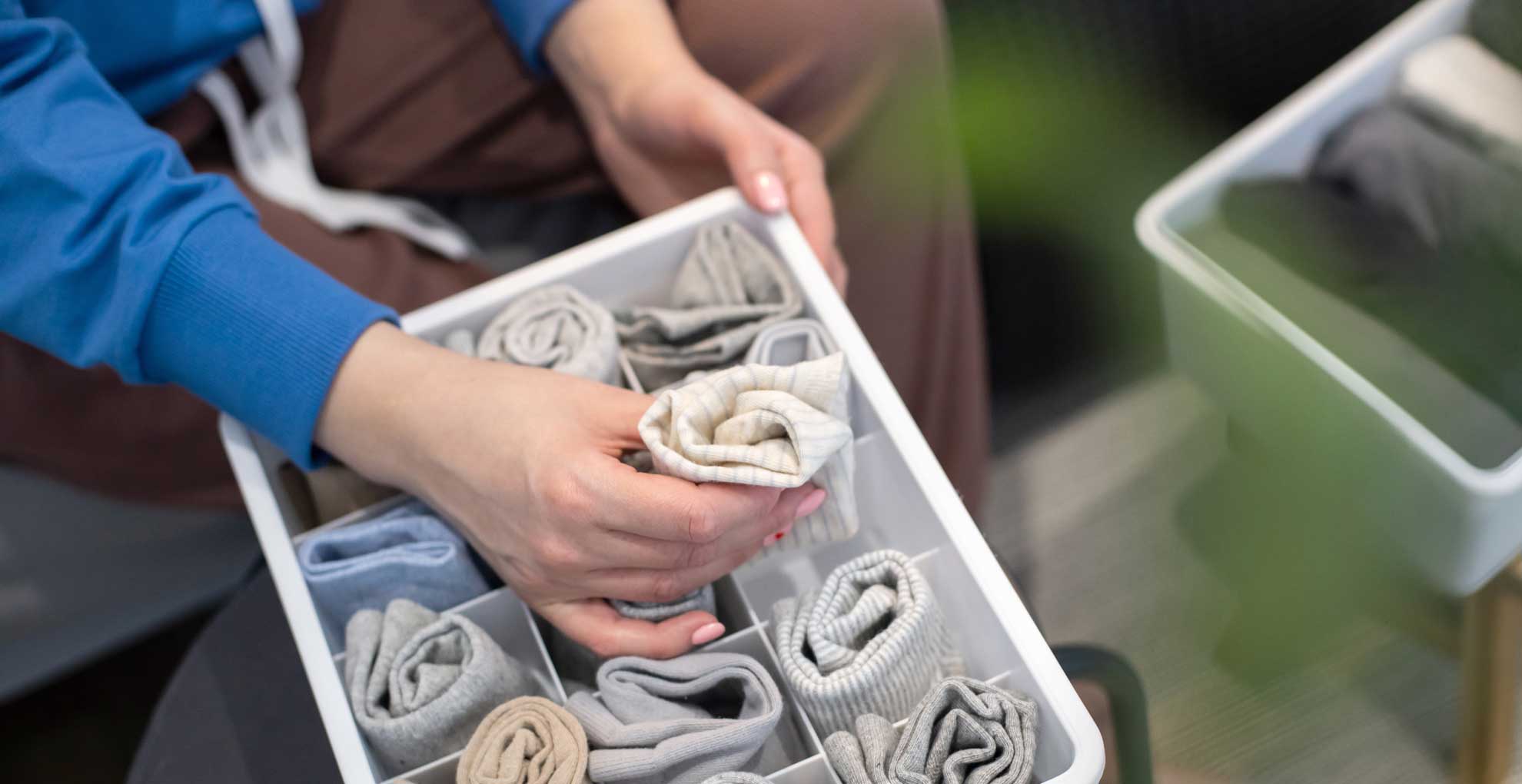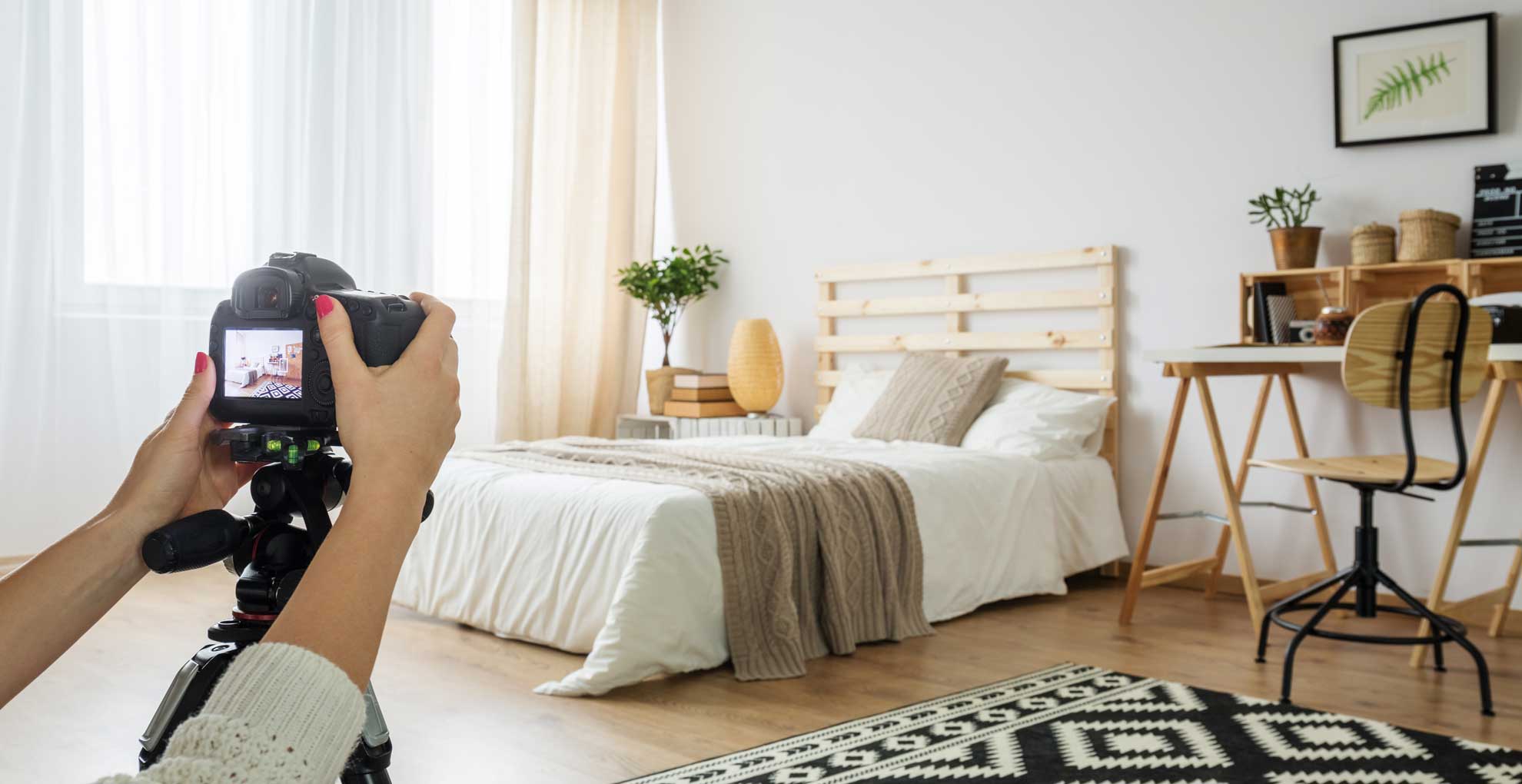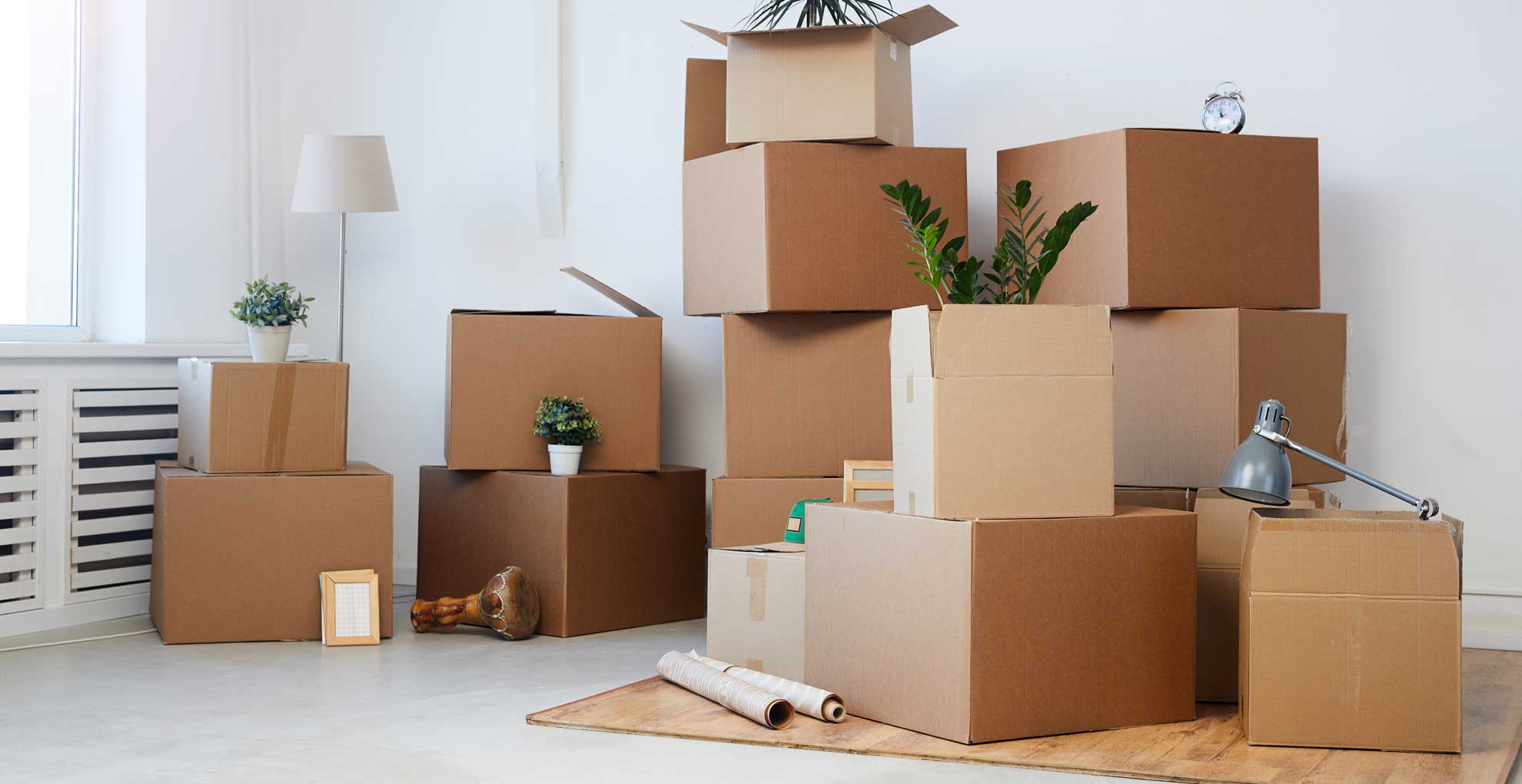How to get motivated to declutter: 12 expert tips to help get you started
We've spoken to professional organizers and those with tidy homes to find out how to stay focused and on track when you're decluttering


Half the battle is feeling motivated to declutter and then staying focused to keep going. It’s not an easy process and involves constantly making emotive decisions, so is it any wonder that people lack the motivation to declutter and put it off altogether?
The process of decluttering your home can be a hard one to even start because you are not merely organizing possessions and freeing up space, but you're also going through a mental and emotional organizational life journey too. This sense of gravitas can often feel overwhelming and make it all too easy to put the task on hold. But you can't delay the act of decluttering forever.
To help encourage you to start and give you the motivation to declutter we’ve spoken to professional organizers and people with tidy houses to share their top tips on what makes them motivated to tackle the task.
How to get motivated to declutter
“An organized home can make all the difference to the way you feel, as decluttering not only makes your home look and feel more inviting but has also been shown to promote well-being and reduce stress and anxiety,” says Lisa Coe, founder of Happy Space Organised by Lisa.
Here's how the experts' top tips for staying motivated while decluttering.
1. Start small

Getting over the enormity of the job at hand is half the battle with decluttering. Instead, break the job down into smaller tasks, choosing one small space or area to declutter at a time. It might be your sock drawer or a badly organized kitchen cupboard but, with lots of small baby steps, you’ll soon see the progress.
“Decluttering is a mentally and physically taxing process. You’re having to make decision after decision about hundreds of possessions and gifts,” says Gillian Gudgeon, Founder of Restore The Calm. So take it slow. “Avoid setting aside a whole day and aim for really small tasks as you go about ordinary life,” she advises.
Sign up for the woman&home newsletter
Sign up to our free daily email for the latest royal and entertainment news, interesting opinion, expert advice on styling and beauty trends, and no-nonsense guides to the health and wellness questions you want answered.
Gillian even suggests a few mini-targets. “Pick one room and break that down further into micro-tasks, fill one carrier bag full of unwanted things a week, or ask each member of the family to find one item every day that they no longer want.”
2. Change your mindset
A great way to motivate yourself to declutter is to change your perspective on decluttering in general, to make the process feel rewarding rather than daunting.
“Many people don’t do it because they feel they are wasting money/throwing it away or that they will need it in the future. Think of it as making space in your mind and home for new things, new experiences, and less worry,” says Craig Hoareau, Owner of A Tidy Mind London.
3. Choose the time of day carefully
Everyone has a different time of day when they feel naturally more motivated to get things done, be it cleaning the bathroom or organizing the fridge. If you’re feeling overwhelmed by the task stop and think about when suits you best – when are you at your most productive?
If you’re a morning person, block out some time when you know you won’t be disturbed or, if you have a surge of energy around lunchtime, have a declutter in your lunchbreak. Make it work for you and it won't feel like such an arduous task.
4. Set a timer
Another great tool for motivating yourself is a timer, this works especially well when decluttering a garage or organizing the loft to avoid losing track of time because you're hidden from view.
“It’s easier to commit the energy if you know beforehand how long you will be working,” says Mel Carruthers, Owner of More Organised. “Decide how much time and energy you want to commit to the task, set a time, and get cracking! Very often, if you set a timer for 15 minutes, you’ll then be so engrossed in the task when the alarm goes off that you’ll want to continue.”
5. Take regular breaks and snacks

Decluttering is tiring on the body and the brain so keep your energy levels up with regular breaks for drinks and snacks to stay hydrated and stay focused to carry on.
Ideally, avoid sugary treats that will give you a burst of energy and sugar high before making you slump and feel tired which is not conducive to feeling motivated to tackle the decluttering job at hand.
6. Focus on the vision
There's no better incentive to keep going than focusing on the vision of what you are trying to achieve. Retain an image in your head to spur you on. “There’s no better motivation than visualizing the transformation from a chaotic and clutter-filled space to a clear and calm one,” says Lisa.
If you are having trouble imagining the endpoint, Mel suggests you: “write your goals and reasons on post-it notes so that you have a reminder as you declutter”.
7. Take before and after photos

There’s nothing quite like a pictorial reminder of what you are trying to achieve and how far you’ve come, and before and after photos are a great way to stay on track.
“They are all inspirational as they track visual progress as a home transforms. I always encourage clients to take before and after photos of all of their spaces as regularly as they can,” says Louise Davidson, professional declutterer at The Tidy Lark. “When you feel defeated, go back through them and remind yourself what you are capable of and what you have achieved so far.”
8. Keep a record

Similarly, making a note of how much you’ve managed to declutter from your home is a great way to stay on track and keep motivated to do more. “As you remove items from your home, keep a tally of how many bags and boxes you have removed. Could you set a target to declutter 25% of your belongings? 50%?” asks Mel.
“If you think it will help, keep a tally of the actual number of items you’ve relinquished or quantity of bags that you’ve let go and where they’ve all gone (e.g. 10 bags to charity, 2 to recycling, 1 to textile recycling, a handful in the bin),” says Gillian. “Watching that number grow can be pretty inspiring as well as thinking about the money you’re helping that charity raise and the thrill you’ve given the purchaser.”
9. Create a tick list
If you’re a ‘to-do-list' type of person, then utilize this trait when it comes to motivating yourself to declutter.
“A tick list of items within categories means clients will know areas of their home are completed, even when the whole house may still feel like a mess," says Louise. "Knowing that some of it is already complete and you’re closer to your goals is a great motivator.”
10. Buddy up
While for some tasks it can be distracting to declutter with a friend, like when trying to declutter a bedroom in a day because they might slow you down or make you doubt your decisions, it can be worth having an accountability partner, to help stay motivated. Perhaps someone on the end of a phone or Whatsapp message, who is also trying to declutter their home at the same time to help you stay on track.
“Accountability can be really powerful. Do you have a friend or family member that you can share your decluttering goals and progress with?” says Mel.
11. Create a declutter playlist
For most people, decluttering is a relatively tedious job so why not try and listen to something to inspire or even distract you as you’re sorting?
“Aim to make the time you spend decluttering more enjoyable by listening to a podcast, audiobook, or your favorite music,” says Lisa. You might even want to create a motivational decluttering playlist to spur you on when you’re fading.
12. Know when to try again
Sometimes you start decluttering and it’s just not working. Perhaps you’re distracted, feel irritable, or find you haven’t given yourself enough time so are rushing. When this happens, you need to stop and decide if now isn’t the best time.
“Sometimes I don’t have the energy to declutter and that’s when I give myself some more time, try again on another occasion," says Penny Moyses, Founder of the Clean & Tidy Home Show."Or I take a look at other pending tasks, challenges, and emotions to address them first to create more space and energy for decluttering,”
Where do I start with decluttering when I’m overwhelmed?
Decluttering can feel overwhelming but you need to work past this to make progress and move forward. The best way to do this is to break the task into lots of smaller jobs and see it as a continuing habit rather than something that can be done quickly.
“Accept that it is often a very long process and decluttering provides maintenance, it’s not something that can be achieved overnight,” says Penny.
“Maybe you could commit to just fifteen minutes of decluttering several times a week? It’s amazing what you can achieve through small consistent actions,” says Lisa. Thinking of decluttering as an ongoing process rather than something that needs to be tackled in one go is something all our experts agree with.
“I would recommend not burdening yourself with any form of a deadline, which will only heap more pressure on, and always stop on a high rather than let that elation carry you onwards, as ultimately you will hit a demoralizing barrier,” says Gillian.
Why is it so hard for me to declutter?
It’s naive to think of decluttering as simply a physical exercise as there is a huge amount of emotion involved in organizing and clearing out your home. “For some, decluttering is hard because of a fear of change,” says Louise. “Old habits are hard to break, knowing you want and need to is one thing, but the discipline to keep moving forward when you can’t be sure of the outcome can be quite scary.”
Getting rid of baby items can be especially difficult as you are letting go of a stage of your life and perhaps making the decision that you aren’t having any more children. “I am sad to part with things associated with special memories, feel conflicted about getting rid of something that I might need again or perhaps feel the decision that getting rid of some baby grows suggests a finite decision on whether or not I will have another child,” says Penny.
“There is also the sentimental aspect, whether it’s your children’s drawings or belongings from when they were young or someone who has passed, the thought of letting go of those things can feel daunting,” says Craig. “You may feel guilt or like you’re losing the memory, but you don’t have to keep everything to be reminded of people or special times in your life.”
“People often struggle to let go of items that were gifts or that they paid a lot of money for. Always remember that the gift is in the giving and the money has already been spent, storing the item away for years in a cupboard won’t increase its worth to you,” adds Lisa.
What’s more, we often don’t realize that our home has become cluttered because we aren’t looking at it with fresh eyes. “Our clutter builds up over time, so we become used to it being around,” says Mel.
How do I get the energy to declutter?
With our busy lives, decluttering is often the last thing we want to do, and finding the energy to make a start isn’t easy. “Seeing progress is a great energizer, so start with something that will make a difference,” says Louise. “It’s one of the reasons in the KonMari Method we start with clothes, as having a decluttered and organized wardrobe containing only clothes that we love and make us feel great gets the day off to a positive start.”
It's important to know that not everyone declutters in the same way and we all have different stamina and energy levels. “Figure out what your limit is. Some people can declutter for a whole day and others can only manage a couple of hours. So try to stay within your limit and avoid decision fatigue or exhaustion,” says Craig.
If you are really struggling to start, it might be worth calling in the professionals. While this inevitably comes with a fee, having a professional work alongside you and encourage you will be a worthwhile investment for something that you might have been putting off for years.

Charlotte Duck is an award-winning journalist who writes who regularly writes for Tatler, the Evening Standard, Yahoo Finance, and Virgin Money. She loves anything to do with property and has written about everything from homes with their own helicopter pad to transforming a room on a £99 budget.
-
 Le Creuset has taken the gold standard literally — their 100 year launch features real gold and an iconic designer collaboration
Le Creuset has taken the gold standard literally — their 100 year launch features real gold and an iconic designer collaborationLe Creuset have turned 100 years old and to celebrate they have launched a new colour — Flamme Dorée — as well as a coffee table book with designers Assouline
By Laura Honey Published
-
 This chic, Brazillian perfume brand is our beauty team's secret to smelling expensive and unique
This chic, Brazillian perfume brand is our beauty team's secret to smelling expensive and uniqueFrom salty accords to modern twists on tuberose, there's a Granado perfume for every preference - but these 9 blends have our heart...
By Naomi Jamieson Published